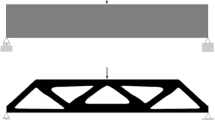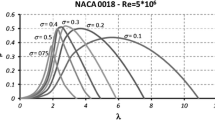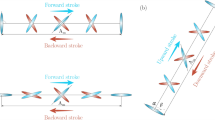Abstract
The asymmetry limitation between left and right wing flap surfaces is one of the most severe requirements for the design of the actuation and control system. When the position asymmetry exceeds a defined value, it must be detected and limited by appropriate monitoring devices equipped with a suitable software. In the design of a new flap control system the development of the asymmetry monitoring subsystem plays a very important role and, together with the flap system layout selection, it was and still is a debated matter in the industry. The currently used monitoring technique is based on differential position detection between left and right surfaces. Their use generally slightly reduces the asymmetry, but in some cases it may have an unreliable behavior. To overcome the shortcomings of the previous models, we propose new and different monitoring strategies and assess their positive effects on the maximum asymmetry following a torque tube failure; in particular, the asymmetry reduction coming from the employment of the proposed techniques in the considered operative conditions (typical deployment / retraction flap actuations), with respect to a previous type of technique, can be evaluated in the order of 30%.
Similar content being viewed by others
References
G. Jacazio, L. Borello and G. Villero, Secondary flight controls: mechanical failures of transmission lines and related asymmetry problems, 19th ICAS Congress, Anaheim, California (1994).
L. Borello and G. Villero, Mechanical failures of flap control systems and related monitoring techniques, 21st ICAS Congress, Melbourne, Australia (1998).
L. Borello and G. Villero, Mechanical failures of flap control systems: proposal of advanced monitoring techniques, International Journal of Mechanics and Control, 5 (2) (2004).
L. Borello, G. Villero and M. D. L. Dalla Vedova, New asymmetry monitoring techniques: effects on attitude control, Aerospace Science and Technology, 13 (8) (2009).
A. Joshi and P. Jayan, Modeling and simulation of aircraft hydraulic system, AIAA Modeling and Simulation Technologies Conference and Exhibit, Monterey, California (2002).
P. Krus, Modeling and simulation of complex fluid and mechanical aircraft systems, AIAA 1998 World Aviation Conference, Anaheim, California (1998).
G. Jacazio and L. Borello, Mathematical models of electrohydraulic servovalves for fly-by-wire flight control systems, 6th International Congress on Mathematical Modelling, St. Louis, Missouri (1987).
L. Borello and G Villero, Flap control systems actuators: mathematical and computational model for dynamic simulation, European Congress on Computational Methods in Applied Sciences and Engineering ECCOMAS 2000, Barcelona, Spain (2000).
B. Etkin and D. R. Lloyd, Dynamics of flight: Stability and control, Wiley (1982).
L. Borello, G. Villero and M. D. L. Dalla Vedova, Redundant hydraulic secondary flight control systems behavior in failure conditions, Journal of Mechanics Engineering and Automation, 3 (8) (2013).
Author information
Authors and Affiliations
Corresponding author
Additional information
Recommended by Associate Editor Kyeongsik Woo
Kyung Seok Sim received a B.S. degree in mechanical engineering from Ajou University in 2008. He is currently a Ph.D. candidate at Ajou University in Suwon, Korea. Mr. Sim’s research interests are in the area of multibody and structural dynamics, optimization, and computer-aided engineering.
Lorenzo Borello received the M.S. degree from the Politecnico di Torino in 1973. He is a retired full professor and continues to cooperate with other researchers of the Department of Mechanics and Aerospace Engineering His research activity is mainly focused on aeronautical systems engineering and, in particular, is dedicated to design, analysis and numerical simulation of on board systems, study of secondary flight control system and conception of related monitoring strategies and developing diagnostic algorithms for aerospace servomechanism and flight controls.
Giuseppe Villero received the M.S. degree from the Politecnico di Torino in 1974. He is an assistant professor at the Mechanical and Aerospace Engineering Department of Politecnico di Torino, that joined in 1982. Since 2003 he is also an aggregate professor in the same Department where he teaches aerospace structural engineering. His research activity is mainly focused on the aeronautical systems engineering and, in particular, is dedicated to design, analysis and numerical simulation of on board systems, and conception of related monitoring strategies.
Matteo Davide Lorenzo Dalla Vedova received the M.S. and the Ph.D. degrees from the Politecnico di Torino in 2003 and 2007, respectively. He is currently assistant researcher in the Department of Mechanics and Aerospace Engineering. His research activity is mainly focused on aeronautical systems engineering and, in particular, is dedicated to the design, analysis and numerical simulation of on board systems, study of secondary flight control system and conception of related monitoring strategies and developing of prognostic algorithms for aerospace servomechanism.
Rights and permissions
About this article
Cite this article
Borello, L., Villero, G. & Dalla Vedova, M.D.L. Flap failure and aircraft controllability: Developments in asymmetry monitoring techniques. J Mech Sci Technol 28, 4593–4603 (2014). https://doi.org/10.1007/s12206-014-1027-0
Received:
Revised:
Accepted:
Published:
Issue Date:
DOI: https://doi.org/10.1007/s12206-014-1027-0




